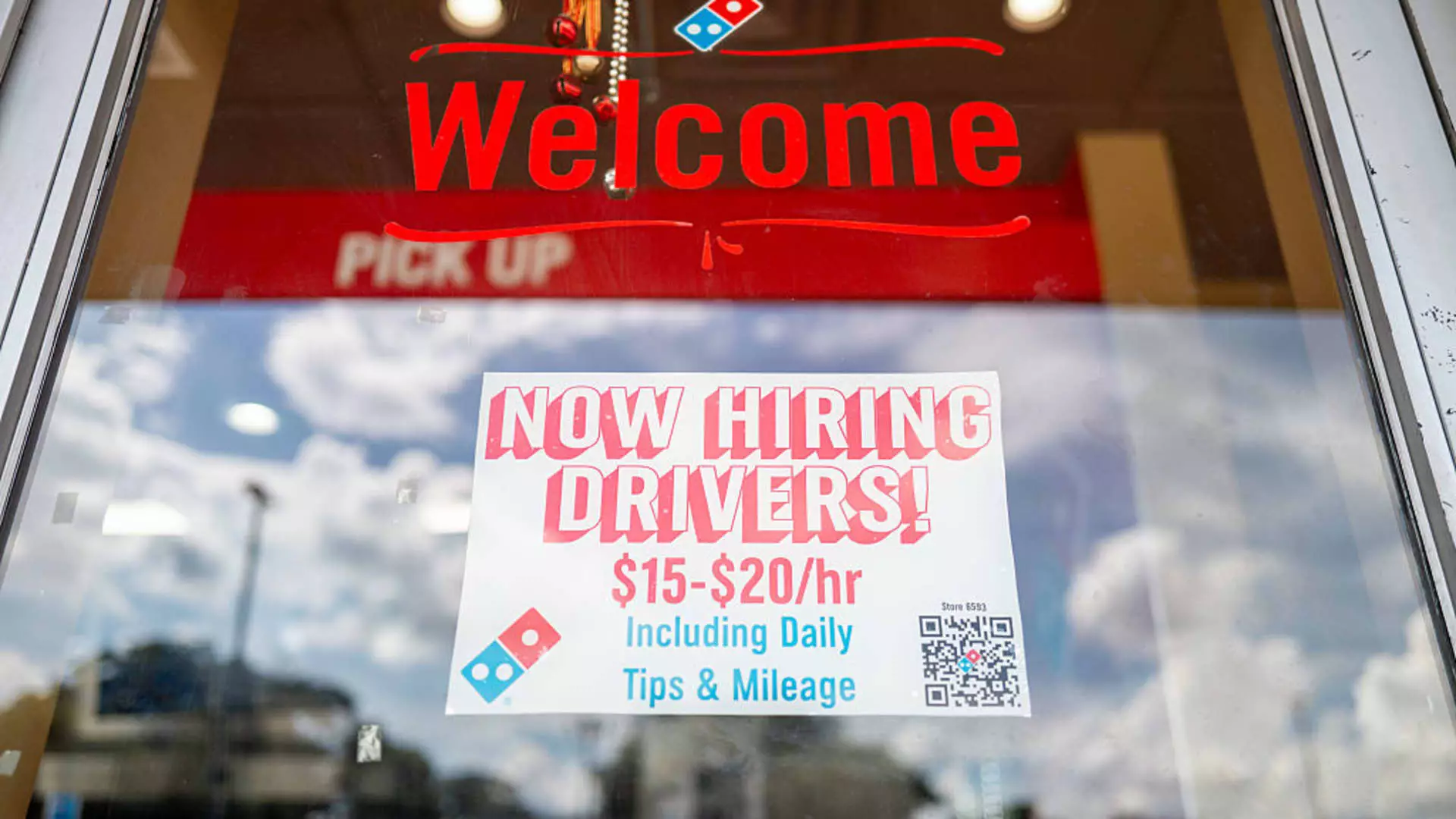In recent times, the narrative surrounding a resilient and expanding job market has been challenged by subtle yet alarming indicators. While official statistics often paint a picture of stability, beneath the surface, a troubling reality is emerging—one that threatens to undermine the economic well-being of countless workers. For those pushing for progressive, center-leaning policies that prioritize social safety nets and equitable growth, understanding these nuances is critical. The ostensibly healthy employment landscape is quickly revealing cracks, exacerbated by misguided decisions aimed at streamlining government workforce—decisions that may have far-reaching consequences.
The supposed strength of the labor market hinges heavily on the illusion of relentless growth. Yet, recent data suggests a disturbing slowdown. Private sector hiring, a key indicator of economic vitality, has contracted unexpectedly, with job creation failing to meet expectations. This slowdown isn’t a random fluctuation; it’s symptomatic of broader economic shifts driven by policy missteps, notably those originating from administrative efforts to reduce federal workforce numbers. When hundreds of thousands of federal employees are laid off, expectations of an immediate boost in productivity or efficiency often give way to rising unemployment and diminished consumer confidence. The narrative of a booming economy becomes tenuous when such structural changes are imposed without a comprehensive plan to support affected workers.
The Impact of Federal Workforce Reductions on Society
One of the most concerning aspects of this labor market contraction is the shift in where job seekers are applying. Data revealing a 150% surge in applications from former federal workers—especially in knowledge-intensive fields—should serve as a wake-up call. It indicates not only a labor shortage but also a sense of insecurity among public sector employees. When layoffs are driven by political agendas rather than strategic planning, the consequences threaten to destabilize the social fabric that holds our communities together.
Moreover, these layoffs are not isolated; they ripple across the economy. The notion that cutting federal jobs will somehow free up resources for private enterprise ignores the interconnectedness of our economic ecosystem. When government workers who spent money locally are suddenly unemployed, local businesses suffer, and the broader economy slows down. If policymakers truly prioritized societal well-being, they would consider how job cuts might deepen inequality or prolong economic recovery. The evidence suggests that workers displaced by these policies are finding it increasingly challenging to secure new roles, especially in high-demand sectors like technology and data analysis.
The Deceptive Calm and the Rising Storm
Economists tend to dismiss early signs of economic distress, clinging to assumptions of resilience. However, the reality is far more complex. The slowing job creation figures, combined with declining job openings at the federal level, suggest that the economy’s apparent strength is superficial. The slow growth pace—far below historical averages—may be a harbinger of a more serious slowdown. The fact that politicians and economic elites are reluctant to acknowledge these signs is telling; it reveals a bias toward maintaining confidence at any cost rather than addressing the underlying issues.
What makes this situation more precarious is the role of monetary policy. Persistent high-interest rates, meant to curb inflation, are inadvertently stifling growth in crucial sectors like technology—an engine of innovation and good-paying employment. For a center-left liberal perspective that values inclusive growth and social equity, this is profoundly troubling. It signifies a policy failure where efforts to control inflation come at the expense of fostering a dynamic job market that can accommodate workers displaced by political measures.
The alleged goal of reducing federal inefficiencies seems to have been overshadowed by broader economic repercussions. Instead of fostering an environment where jobs are preserved and people are supported through transition programs, abrupt layoffs contribute to insecurity and economic stagnation. The decision to drastically cut federal jobs without comprehensive support mechanisms exemplifies a shortsighted approach, risking long-term damage to social cohesion and economic stability.
The Need for a Balanced, Regressive Approach
It is essential to recognize that policies aimed purely at austerity and cost-cutting—especially those motivated by political biases—are inherently flawed. They undermine the core principles of social justice and economic fairness that progressive centers advocate for. Instead of viewing federal employment as a burden to be minimized, we must see it as an investment in the public good, fostering an inclusive economy where workers are supported rather than sacrificed at the altar of political efficiency.
At the root of the issue lies a fundamental misjudgment: neglecting the importance of a resilient, adaptable labor market that values all workers—public or private. For a center-leaning ideology, the focus should be on ensuring that economic policies are designed with the well-being of ordinary people in mind. This includes safeguarding jobs, investing in retraining programs, and standing against measures that threaten to deepen inequality. The current trajectory, which favors short-term savings at the expense of long-term social stability, risks accelerating a cycle of disaffection and economic hardship.
The challenge for policymakers is simple yet profound: they must resist the temptation to view economic growth solely through the lens of deficit reduction and fiscal conservatism. Instead, they should embrace strategies that foster sustainable growth, protect vulnerable workers, and ensure that economic gains are shared equitably. Only then can we hope to navigate the complex realities of a modern, interconnected economy without sacrificing social cohesion for ideological expediency.


Leave a Reply